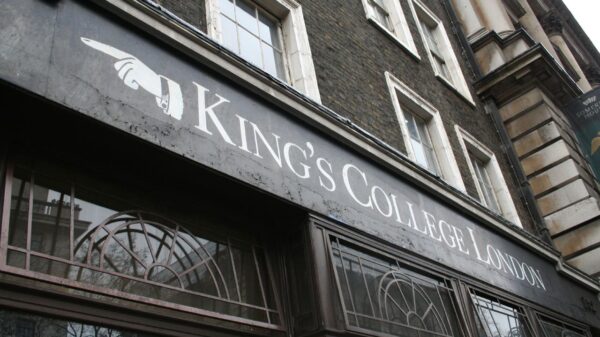Roar writer Camilla Alcini interviews Paddy Ryder, the co-founder of Covid Interns, a platform that matches students and companies according to their needs.
You might be familiar with the feeling of opportunities fading away in front your eyes because of the pandemic. With almost every internship being cancelled or moved online, as well as graduate jobs shrinking dramatically, the virus left little chances for students to gain that precious experience that almost every position asks for. Simultaneously, companies have been heavily impacted by the Covid crisis, which renders the situation even more complicated.
Paddy Ryder is a young graduate from Trinity Business School who thought this situation could be turned into a great project. Alongside his course-mate and friend Rob Muldowney, he created Covid Interns, a platform that connects students and companies according to their needs.Â
Businesses and students each fill out an application form in order for the team to get a bespoke understanding of their needs. This form specifies information such as areas of interest, time commitment, type of role etc. It is free to apply; Covid Interns makes a small placement fee only after three weeks from a successful placement (although the fee is at below-market rates to reflect the project’s social ethos).
Roar interviewed Paddy and learnt more about the platform.
Roar: Tell our readers a bit about your project. What’s the purpose of Covid Interns and how do you plan to reach your objective?
Paddy: Covid Interns is a social enterprise that aims to link students/graduates with organisations to help combat the commercial effects of Covid-19. To date, over 300 placements have been made across the world from New York to Singapore, with the majority taking place in Ireland and the UK.
Covid Interns offers a sector-agnostic service with placements taking the form of full-time roles, long-term internships, and part-time projects that can be done alongside academic studies.
R: The pandemic has definitely changed the work landscape. How do you think young people and companies are adjusting to it?
P: Covid-19 has resulted in more work being done online, accelerating digitalisation. Increasingly, tasks that were once thought of only being done face-to-face are taking place over video calls such as Zoom.
The uptake from students and businesses alike has been really positive with many of our partnerships receiving very favourable reviews. Often daily/weekly check in’s have assisted with remote work.
Similarly, there has been a multitude of larger organisations such as Salesforce and Revolut that have embraced remote working by offering their subordinates the opportunity to engage in hybrid work.
R: How exactly does Covid Interns benefit both parties?
P: Covid Interns placements are mutually beneficial and work in a similar manner to traditional internships. The main difference is our placements are focused on SMEs. These organisations have typically been under-served and not engaged with interns to the same extent as larger firms.
Working with SMEs often give interns greater responsibility, autonomy, and decision making power whereby they can have a higher added value in their partnered businesses.
Our goal is to democratise the internship landscape by offering SMEs a cost-effective route to hiring. By sourcing and screening potential hires, our team enables business owners to focus on their strengths i.e. running their business, without conducting an arduous interview process with a multitude of candidates.
R: When the pandemic will (hopefully) be over, do you think Covid Interns will still be a valid project to connect young graduates and professionals?
P: Yes, most certainly. Our work to date has shown that SME internships are a viable alternative to large corporations.
We have also begun offering part-time, in-semester placements that are aligned to student’s desired career paths. This means students can bolster their theoretical classroom learnings with practical hands-on work which can replace traditional college jobs.
There are numerous studies stating that if students are exposed to more relevant part-time work when in college, they can develop a better network, have higher future career earnings, and ultimately have a more successful career.
R: Tell us about your team: how did you actually come up with the idea, and what obstacles did you face?
P: Our team is a group of current students and recent graduates from Trinity and University College Dublin (UCD). As such, we are well-positioned and understand the pitfalls of entering the graduate job market.
In fact, the original idea came from conversations with other students about the anxieties we faced when trying to secure work post-graduation.
Creating a cohesive team has enabled Covid Interns to scale and without our team of now eight people we would not have been able to assist so many businesses and students with their employment needs.
The process of going from ideation to incorporation has been a long and enjoyable journey filled with many ups and downs, however, having a mission that we all believe in has been the catalyst to getting to where we are now.



















